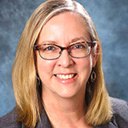CPA pathways discussion: Addressing the objections
May 8, 2023 | Linda Wedul, CAE

How do you start a conversation about a controversial topic? You draft legislation, of course.
The MNCPA introduced legislation this session at the Minnesota Legislature to broaden the pathways to CPA licensure, leading to many conversations with multiple stakeholders. It is in these conversations that new ideas and rationales emerge for making change. It is also where objections are raised — and these are just as important to address as the problems we seek to solve.
The reason driving the change — the declining number of CPAs — is well-documented, so what are the objections to broadening the pathway to CPA licensure? Let’s discuss.
Objection No. 1: Allowing the option of 150 college credits or 120 credits with additional experience will destroy mobility.
Mobility is the ability for a CPA licensed in one state to practice across state lines in other states without having to apply for additional state licenses. Mobility is valuable to the individuals, entities and communities CPAs serve, especially when the demand for CPA services continues to increase and there is a shortage of CPAs.
Mobility is based on substantial equivalency. Substantial equivalency allows for variations among the different states and there are many documented differences between state rules. The profession has proven that it operates effectively, clients are well-served and public protection remains paramount with variations in state rules.
The Uniform Accountancy Act (UAA) includes an option for certification without 150 college credits. It is commonly referred to as the 4/10 rule. If a CPA applicant passed the CPA exam within 10 years and has four years of experience, they qualify for CPA licensure. We see variations among states with the 4/10 rule. For some it is 2/10 and even 0/10. There is no red flag on the license to indicate they do not have 150-college credit hours. Once certified, those CPAs have mobility and can practice across state lines.
The National State Board of Accountancy (NASBA) also has Mutual Recognition Agreements (MRAs) with other countries that allow individuals with accounting licenses from other countries to practice in the U.S. Accountants in countries with an MRA are not required to have 150-college credit hours to practice in the U.S. A common European model is three years of college education plus work experience to qualify for licensure. Each country is different, but, most importantly, we see greater flexibility in the education requirement for foreign accountants than is allowed for U.S. applicants for licensure.
These examples show that broader paths do exist and, yet, NASBA has said if Minnesota changes its requirements and adds 120-college credit hours with two years of work experience, all CPAs in Minnesota, even those currently certified, will not be substantially equivalent.
Let’s also look at individual state boards of accountancy. There are variations among the state boards in how substantial equivalency is determined. Some state boards explicitly express that NASBA’s determination of substantial equivalency must be followed. Some state boards say NASBA’s determination or the board of accountancy can determine substantial equivalency. If Minnesota’s legislation was to pass, there are some states that could declare Minnesota CPAs as substantially equivalent, which would allow mobility in those states without changes to the UAA and without NASBA’s approval.
Mobility is a hurdle, but it is not the problem. The problem is there are not enough people earning CPA licenses.
Objection No. 2: The demographics impacting the profession are temporary and will change, leading to too many CPAs.
Workforce supply and demand will fluctuate over time. In 1983, when the first state implemented the 150-credit hour requirement, the workforce was abundant because all baby boomers — the largest generation at that time — were in the workforce. They would all have children and we could not foresee the dramatic drop-off in personnel the profession is experiencing today. At that time, adding additional requirements to the profession served as a filter to reduce the number of candidates when there were too many candidates.
Broadening the path to licensure is one change needed to bring more people into the profession, but it is not the only change. The profession must also address workloads, salaries and the profession’s image. Minnesota’s legislation will not result in a sudden rush of new CPAs, but it will make the credential attractive to more candidates. It will also make the credential more accessible to candidates who do not have the financial means to pay for an additional 30 college credits and forego a year of wages.
Objection No. 3: Allowing 120 college credits with an increase in years of experience creates a reputational risk that the profession is lowering its standards to attract candidates.
Going back to mobility, the profession already allows candidates with 120 credits and additional experience to qualify for a license, so the strength and validity of this objection is reduced with that in mind.
In addition to education and experience, passing the CPA exam is also a requirement for licensure. The exam is the one uniform requirement for licensure. The CPA exam tests the same content and level of knowledge regardless of which state a candidate is using to apply for licensure.
More than 45 states allow candidates to sit for the exam with 120 college credits. If a candidate can pass the exam with 120 college credits and demonstrates the required CPA work experience, the additional 30 credits create a burden and a barrier to earning the CPA credential. Broadening the pathway shows the profession seeks to set appropriate requirements to protect the public interest, but not so excessively as to deter candidates who do not have the resources to earn an additional 30 college credits.
Regulatory agencies like the Public Company Accounting Oversight Board (PCAOB) and U.S. Department of Labor are also included in this objection. In this context, it is important to remember that the CPA exam is designed to test the knowledge of an entry level candidate, not the partner signing an audit report. Professional liability and regulatory agencies play a key role in ensuring that CPAs with appropriate experience and knowledge are signing audit reports.
Academic studies also show that the 150-credit requirement did not have a measurable impact on audit quality. Two studies that examine this issue are:
The profession currently has a mix of CPAs who qualified under 120 college credits and 150 credits. Ironically, many of those opposed to any changes earned their CPA with 120 hours. The clients and users of the work produced by CPAs do not differentiate between CPAs with 120 or 150 college credits.
Objection No. 4: The profession’s image as overworking and underpaying CPAs is the problem, not the 150-hour requirement.
The profession’s image is an issue and a web search will quickly find the problems. Some are self-made and others are imposed on the profession, e.g., tax filing deadlines, audit deadlines, etc. While this must be addressed along with broadening the pathways to the credential, salaries are a market-driven issue and not a regulatory burden.
What a web search doesn’t reveal are the many stories of how CPAs provide the financial stability that communities require to be vibrant, the problem-solving skills that CPAs bring to businesses and the insights CPAs provide that protect and help clients achieve their goals and prosper. Equally important are the stories of professional pride, individual growth and financial reward to those in the profession.
Adapt, thrive for today’s world
The legislation proposed in Minnesota does not eliminate the option to use 150 college credits to qualify as a CPA; the legislation provides additional pathways. It is a modification, not a radical gutting of the current requirements. Making a change is about adapting and thriving, which the profession has done many times and will continue to do.
Learn more about this initiative
The MNCPA introduced legislation (
HF 1749 and
SF 1660) in February 2023 to consider broadening the pathways to CPA licensure. The legislation was advocated for and supported by the MNCPA board after years of discussion with members concerning the ongoing CPA pipeline concerns.
Learn more about broadening the pathways to CPA licensure.
Topics: Accounting & Auditing, Staffing, Workplace Trends, Professional Certification, Succession, Education
Linda Wedul, CAE

Linda Wedul is president and CEO of the MNCPA. She’s usually spotted at MNCPA events, introducing herself to members with a warm smile and memorable laugh. Mixed among the Footnotes, accounting journals, leadership books and three monitors in her office, you’d be surprised to see a dog kennel. Her unpaid job is volunteering as a foster family for service dogs in training through Can-Do-Canines. She and her husband have two adult children and live in Farmington. Linda can be reached at 952-885-5516 or lwedul@mncpa.org.
Blog Posts by this author